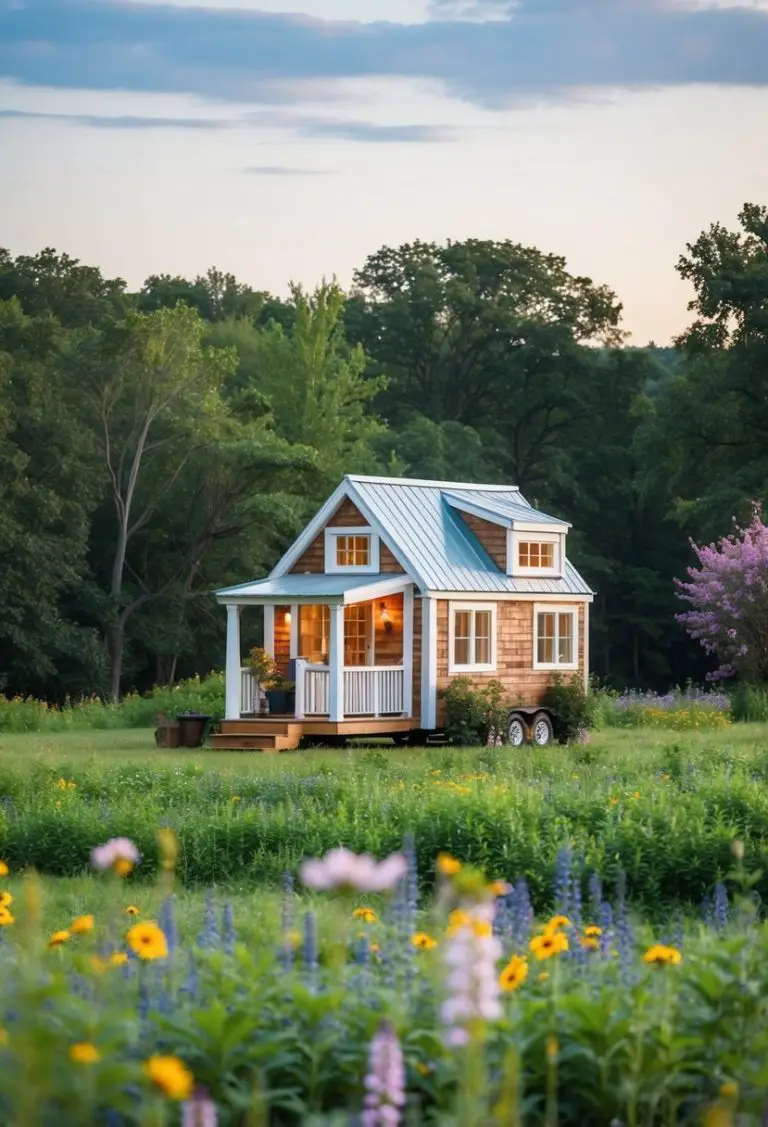Are Tiny Houses Legal in Kentucky? Exploring State Regulations and Requirements
Tiny houses are becoming increasingly popular as people seek a minimalist lifestyle and sustainable living. However, many people are unsure if tiny houses are legal in Kentucky. The answer is yes, but there are specific regulations that must be followed.
According to Kentucky regulations, tiny houses are allowed to be used as single dwelling units when placed on a permanent foundation. However, there are guidelines that must be followed, including specific floor space and ceiling height requirements, as well as emergency exits. In addition, it is important to investigate local zoning laws and speak with county officials to learn more about the possibilities for small-home living.
The tiny house movement is gaining momentum across the country, and Kentucky is no exception. While there are regulations that must be followed, it is possible to legally live in a tiny house in Kentucky. By doing research, following guidelines, and working with local officials, those interested in the tiny house lifestyle can make their dream a reality.
Legality and Zoning Regulations
When it comes to tiny houses, the legal landscape can be complex and confusing. In Kentucky, the legality of tiny houses largely depends on local jurisdictions and their zoning laws. Therefore, it is important to understand the zoning regulations of the area where you plan to live before investing in a tiny house.
Statewide Building Codes and Compliance
Kentucky, like many states, does not have specific statewide regulations tailored exclusively for tiny houses. However, tiny houses can be built to comply with the 2018 International Residential Code (IRC) Appendix Q, which provides standards for tiny houses on a foundation that are 400 square feet or less. Compliance with the IRC Appendix Q can help ensure that your tiny house meets safety and structural requirements.
Zoning Laws and Placement
Zoning ordinances regulate land use and determine where and how buildings can be constructed. In Kentucky, tiny houses are allowed as single dwelling units when placed on a permanent foundation. However, it is important to adhere to specific guidelines concerning floor space, ceiling height, emergency exits, and more.
For those incorporating lofts, Kentucky’s regulations allow for lower ceiling heights than the general 6 feet 8 inches standard. Lofts should have at least 35 square feet of floor area and no less than 5 feet in any horizontal dimension, promoting efficient and safe use of vertical space.
Counties and Local Jurisdiction
County governments hold the key to whether or not you can legally dwell in a tiny home in Kentucky. In the Louisville Metro area, various types of tiny homes are allowed, including accessory dwelling units (ADUs) and backyard cottages. However, it is important to check with the local jurisdiction to determine if any permits or inspections are required before building or placing a tiny house.
In Fayette County, which is open to conversations concerning tiny houses, it is worthwhile to investigate local zoning laws and speak with county officials to learn more about the possibilities for small-home living. In addition, Frankfort and Jefferson County have their own zoning regulations that must be followed.
Overall, it is important to do your research and understand the zoning regulations of the area where you plan to live before investing in a tiny house in Kentucky.
Building and Living in a Tiny House
Building and living in a tiny house has become a popular trend across the United States, including in Kentucky. While tiny homes are legal in Kentucky, there are specific guidelines and regulations that must be followed for construction and placement.
Construction and Foundations
When building a tiny house in Kentucky, it is important to adhere to specific guidelines concerning floor space, ceiling height, emergency exits, and more. Tiny houses must be placed on a permanent foundation, and the foundation must meet the state’s building codes. Builders must ensure that the tiny house meets the minimum ceiling height of 6 feet 4 inches for bathrooms, toilet rooms, and kitchens.
There are various types of tiny house construction available, including mobile homes, modular, prefabricated, and portable. There are also many tiny house builders in Kentucky, such as Mighty Small Homes and Beckley Tiny Homes. Those who want to build their tiny house on wheels (THOWs) must ensure that the trailer meets the state’s safety requirements.
Utilities and Off-grid Capabilities
Tiny houses in Kentucky must have access to utilities such as water, electricity, and sewage. Those who want to live off-grid must ensure that their tiny house has the necessary off-grid capabilities, such as solar panels and composting toilets. There are also many tiny house trailer dealers in Kentucky, such as West Kentucky Trailer Sales and T.P.D Trailer Sales, who can help with the installation of utilities.
Tiny House Communities and Placement Options
There are many tiny house communities in Kentucky, such as Bluegrass Tiny Ridge Community and Zephyr Creek Crossing, that offer placement options for those who want to live in a tiny house. However, it is important to investigate local zoning laws and speak with county officials to learn more about the possibilities for small-home living.
Parking is also an important consideration when living in a tiny house. Those who want to park their THOWs must ensure that they are parked in designated areas and comply with local parking regulations.
In conclusion, building and living in a tiny house in Kentucky can be an exciting and rewarding experience. By following the state’s guidelines and regulations, those who want to live in a tiny house can enjoy a comfortable and safe living space.
Frequently Asked Questions
What are the zoning regulations for tiny houses in Kentucky?
In Kentucky, the regulations regarding tiny houses allow for their use as single dwelling units when placed on a permanent foundation. However, it is important to adhere to specific guidelines concerning floor space, ceiling height, emergency exits, and more. Local zoning laws may differ, so it is always recommended to investigate the regulations and speak with county officials to learn more about the possibilities for small-home living.
Can I legally build a tiny house on my own land in Kentucky?
Yes, you can legally build a tiny house on your own land in Kentucky, as long as it complies with local zoning regulations. It is important to note that the regulations may differ depending on the county, so it is recommended to investigate the regulations and speak with county officials before starting the construction process.
What is the cost range for constructing a tiny house in Kentucky?
The cost range for constructing a tiny house in Kentucky varies depending on the size, materials, and level of customization. Typically, a tiny house can cost between $20,000 to $100,000. However, many people choose to build their own tiny houses, which can significantly reduce the cost.
Are there specific areas in Kentucky where tiny house communities are located?
Yes, there are specific areas in Kentucky where tiny house communities are located. The Louisville Metro area and Fayette County are open to conversations concerning tiny houses. However, it is important to investigate local zoning laws and speak with county officials to learn more about the possibilities for small-home living.
What are the building code requirements for tiny houses in Kentucky?
In Kentucky, tiny houses on permanent foundations must adhere to specific guidelines concerning floor space, ceiling height, emergency exits, and more. It is important to investigate local zoning laws and speak with county officials to learn more about the building code requirements for tiny houses in Kentucky.
Is it possible to live in a tiny house year-round in Kentucky?
Yes, it is possible to live in a tiny house year-round in Kentucky. However, it is important to consider the climate and weather conditions in the area where the tiny house is located. Proper insulation, heating, and cooling systems are necessary to ensure comfortable living throughout the year.










